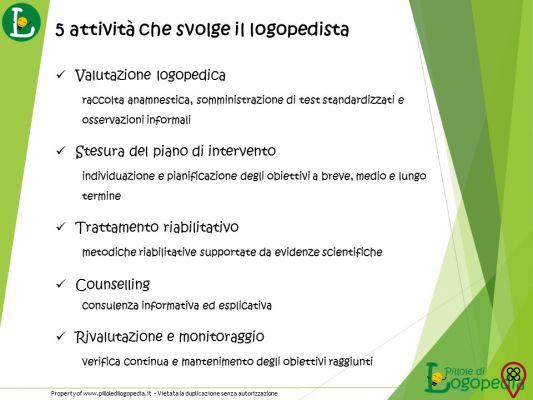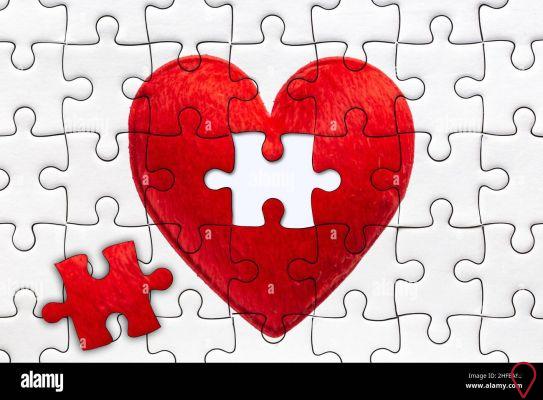Hypochondria is a psychological disorder that is characterized by excessive preoccupation with being sick. Also known as illness anxiety disorder, hypochondria makes a person believe they have an illness, potentiating your body's signals and inventing symptoms that don't actually exist.
Hypochondriacs tend to see several doctors and, even after receiving the diagnosis of being healthy, they are not satisfied with the results and continue to look for other specialists to gain the medical attention they deem appropriate.
The disorder can be more worrying than it seems, as it directly interferes with people's quality of life. In addition, nowadays, with the ease of accessing the internet, when identifying a different sign, a person can look for symptoms and misdiagnose themselves.
The origin of hypochondria can be related to several causes, whether they are environmental – for example, when they are raised by overprotective parents – or related to illnesses, such as when the patient has already faced or experienced a serious illness.
But, despite being a serious pathology, there is treatment for hypochondria, as long as the person is diagnosed as such.
What is hypochondria?
Hypochondria is a pathology related to the irrational fear of illness and even death from medical conditions. Also called nosomiphaly, hypochondria has physical consequences by directly interfering with the patient's quality of life, when he starts to feel a lot of anxiety and anguish in relation to his physical health.
In general, it affects more adults, and may or may not be associated with other conditions, such as anxiety and obsessive compulsive disorder (OCD). The person with hypochondria believes that he is constantly sick, even without having clear symptoms that indicate a health problem.

The hypochondriac is not just overly concerned with his health. He sees doctors regularly for tests, as he doesn't trust the doctor's endorsement that he's really healthy.
Any headache, dizziness or redness of the skin can trigger an anxious process, in which the person believes they have a rare disease and could die at any time.
In short, it is an exaggerated concern with health. The symptoms of hypochondria are very similar to those of anxiety and panic syndrome, which can delay a correct diagnosis.
What are the symptoms of a hypochondriac person?
The symptoms of hypochondria can be diagnosed through the presence of some characteristic symptoms, such as:
- Need to perform medical examinations unnecessarily.
- Need to consult several doctors, of the same specialties, several times a year.
- An exaggerated fear of having a serious illness, especially after hearing about its symptoms.
- Excessive concern with health, harming social and family relationships.
- Repeated checking of vital signs such as blood pressure, body temperature and heart rate.
- Daily self-examination, looking for “suspicious signs” on the body, such as spots on the skin, for example.
- Knowledge of the most varied medicines and types of medical treatments, even if not in the health area.
- Use of the most varied medicines, without need and on their own.
- Constant searches on the internet, looking for information about diseases and medical conditions.
- Difficulty accepting the medical diagnosis, especially if it indicates that there is no problem or disease.
Because it is a mental disorder, each person manifests the symptoms differently. Even hypochondria can also cause a certain aversion to dirt and germs, as the patient feels that he can be contaminated at any moment.
By being always apprehensive about common bodily signs, the hypochondriac person begins to experience several symptoms associated with anxiety, such as anguish, panic and even physical symptoms such as shortness of breath and tachycardia.
What can cause hypochondria?
Hypochondria can have several causes. It commonly occurs in people who grow up in environments where parents or guardians were very concerned about the health of the family in general, or in those who have had a negative and traumatic experience related to a childhood illness, whether personal or that of a close person, for example.
This situation can also manifest itself in people who have had basic care neglected by their family and end up, unconsciously, using this exaggerated concern with their health as a way to draw attention and get the affection and empathy of others.

The disease is also strictly associated with people who suffer from disorders such as anxiety and depression or who are very nervous and worried about the need to face problems or deal with their own emotions.
There are many causes that can lead to hypochondria. However, it is not possible to generalize, and the diagnosis must be made cautiously by specialized professionals.
How to get rid of hypochondria?
Hypochondria is a condition that can bring a lot of physical and mental suffering, both for the patient and for their friends and family. It can be said that it is a disease that has a cure, as long as it is faced rationally and with the help of the right professionals. It is important not to be afraid or ashamed to talk to people you trust about what you are feeling, and then to understand that these symptoms are neither dangerous nor life threatening.
How is hypochondria treated?
The diagnosis of hypochondria is usually made by specialists in mental disorders, such as psychologists or psychiatrists, through observation of the patient's behavior.
If the excessive preoccupation with health is something permanent, which has occurred for at least six months, hypochondria becomes a hypothesis. The health professional should also assess whether or not there are other associated psychiatric disorders.
The first treatment option for hypochondria is with a psychologist, with psychotherapy sessions, as the problem is often just the tip of the iceberg of other comorbidities such as excess stress, depression and anxiety.

The most used psychotherapy in these cases is cognitive behavioral therapy (CBT), which focuses on replacing obsessive patterns with healthier behavior. The professional will help the patient to have a more rational look at his problem, and, consequently, the control of anxiety will be easier.
In some more severe cases, it may be necessary to use antidepressant or anxiolytic medication, under the prescription of a psychiatrist, especially if the diagnosis also indicates depression and anxiety.
How to treat hypochondria naturally?
First, knowing that hypochondria makes the person look for several doctors even though their health is in perfect condition, it is recommended that the patient only schedule an appointment with a specialist in each area.
Reducing excessive visits to the doctor is essential to overcome the anxiety symptoms of hypochondria. Therefore, it is preferable to find a trusted doctor and stay with him for a long time. It is important to maintain a good relationship with this professional and be as sincere as possible when reporting your problem.
Another guideline is to control stress and anxiety, as these are factors that alter the perception of our body, in addition to causing physical and mental fatigue. This can be done gradually, incorporating it into your routine. a time to relax body and mind, through physical exercise or meditation.
Another method is to focus on other practices that are not health-related. This can be done from other activities and subjects of interest to the person. Reading, watching movies and series, taking different courses and getting out of the routine in general can be excellent alternatives.
What is digital hypochondria?
Digital hypochondria is nothing more than looking for symptoms on the internet, leading the person to think that a common symptom, such as a headache, can automatically be a sign of a serious illness.
This is a relatively recent and growing problem, as it is due to the popularization of searches made by internet users. In addition to the problems that can arise from a self-diagnosis or self-medication, the also called cyberchondria, can evolve into anxiety and panic attacks.

Cyberchondria, a disease of the digital age, is closely related to hypochondria, affecting those people who become obsessed with their health status and, consequently, “consult” themselves through search engines and self-diagnose themselves online. Thus, they allow themselves to be influenced by the information they have found and are sure that they have one or more identified diseases.
If used wisely, the internet can be a great source of information. However, it is necessary to be careful when taking it as absolute truth, since not all sites have reliable sources and, sometimes, closing a diagnosis is something much more complex than reading the description of a disease on the internet.
The relationship between internet, anxiety and hypochondria
It's important to establish some rules to limit online time. Also, it is best to avoid searching for those very vague symptoms, such as “headache”, which can literally be a simple headache or some “rare brain tumor”.
To deal with hypochondria, the ideal is to avoid these movements that generate anxiety. Before drawing your own conclusions about something you are feeling, book an appointment with a trusted doctor!
At the slightest sign that you are thinking too much about symptoms and are afraid of being sick, see a doctor. If nothing is identified in the exams, it may be the right time to seek the help of a psychologist and/or psychiatrist. Overthinking and fantasizing terrible disease scenarios can make your anxiety much worse.
It is noteworthy that being a hypochondriac does not prevent – and may even increase – the risk of disease, because performing inadequate drug treatment, without medical monitoring and/or a non-existent disease, can trigger real health problems.
You may also like
- Suffer from anxiety? Understand more about the root of the problem
- Remember to ask for more than one medical opinion, always!
- Being in control of your mind is very important, learn how
To face hypochondria, it is essential to have the support of a specialist, in addition to the support of family and friends. Trust the diagnosis and your support network and remember that you are not alone!

























